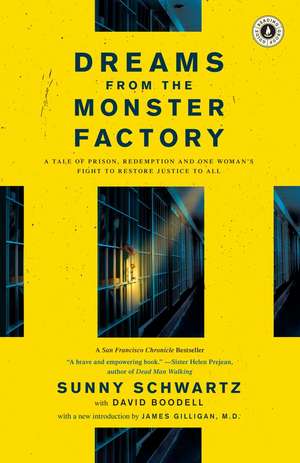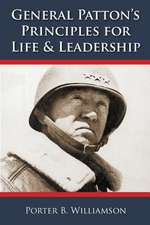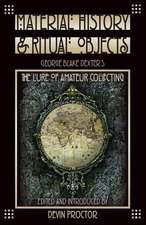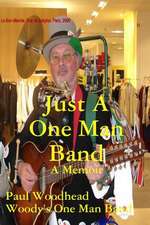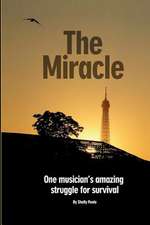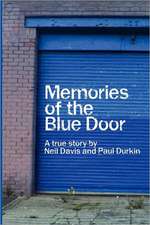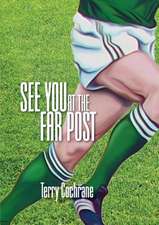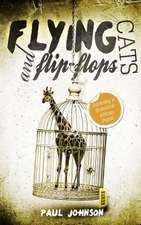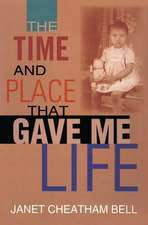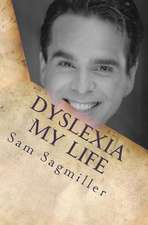Dreams from the Monster Factory: A Tale of Prison, Redemption and One Woman's Fight to Restore Justice to All
Autor Sunny Schwartz David Boodellen Limba Engleză Paperback – 31 ian 2010
In 1997, Sunny launched the Resolve to Stop the Violence Project (RSVP), a groundbreaking program for the San Francisco Sheriff 's Department. RSVP, which has cut recidivism for violent rearrests by up to 80 percent, brings together victims and offenders in a unique correctional program that empowers victims and requires offenders to take true responsibility for their actions and eliminate their violent behavior.
Sunny Schwartz's faith in humanity, her compassion and her vision are inspiring. In Dreams from the Monster Factory she goes beyond statistics and sensational portrayals of prison life to offer an intimate, harrowing and revelatory chronicle of crime, punishment and, ultimately, redemption.
Preț: 94.66 lei
Nou
Puncte Express: 142
Preț estimativ în valută:
18.12€ • 18.84$ • 14.96£
18.12€ • 18.84$ • 14.96£
Carte disponibilă
Livrare economică 24 martie-07 aprilie
Preluare comenzi: 021 569.72.76
Specificații
ISBN-13: 9781416569824
ISBN-10: 1416569820
Pagini: 204
Dimensiuni: 137 x 211 x 15 mm
Greutate: 0.2 kg
Editura: Scribner
ISBN-10: 1416569820
Pagini: 204
Dimensiuni: 137 x 211 x 15 mm
Greutate: 0.2 kg
Editura: Scribner
Recenzii
"S unny Schwartz understands accountability, kindness and forgiveness. In her brave and empowering book about people's ability to change, she tells the story of her life and her work with people who are often detested, feared or forgotten and explains how restorative justice can transform these criminals, their victims and our communities." -- Sister Helen Prejean, author of Dead Man Walking
"Dreams from the Monster Factory is as gritty as the halls of the San Francisco jail in which it takes place. But rather than being filled with despair and violence, Sunny Schwartz's story is marked by hope and respect. It is truly breathtaking to read about the transformation of the jails that Sunny has led. Putting the principles of restorative justice to work at ground zero of the crime culture, Sunny and her team have created a space where hardened criminals can realize their better selves and begin giving back to the community that they have heretofore only taken from." -- Pat Nolan, vice president of Prison Fellowship
" I couldn't put this book down. This is to the world of prisons and rehabilitation what Dead Man Walking is to the death penalty. It's gritty and real, simple yet revolutionary, hopeful but realistic. It isn't all happy endings, but there is vision combined with experience that suggests a way out of the morass our society is in. Dreams, yes, but not fantasies." -- Howard Zehr, professor of restorative justice at the Center for Justice and Peacebuilding, Eastern Mennonite University, and author of Changing Lenses
"A powerfully honest and revealing glimpse into a little-known world. Ms. Schwartz captivates the reader with her clear-eyed belief that even violent offenders can change. Her work shows that violent behavior is a choice and our communities can be stronger if each of us -- victims, offenders, citizens -- better understands why we act the way we do. As a survivor of violent crime, I respect Ms. Schwartz's insistence that the penal system is not working. I admire her willingness to follow her heart toward a vision that will make a difference." -- Trisha Meili, author of I Am the Central Park Jogger: A Story of Hope and Possibility
" Personal and provocative, Sunny Schwartz's book demanded my wide-eyed attention. Schwartz confronts our skepticism of the prison system and its ability to prevent violence with gripping and authentic stories from her life and her work on a visionary program in the San Francisco jails that has actually reduced recidivism rates for violent crimes. Dreams from the Monster Factory is an inspiring story about justice and forgiveness." -- Terrie M. Williams, author of Black Pain: It Just Looks Like We're Not Hurting
" Personal and provocative, Sunny Schwartz's book demanded my wide-eyed attention. Schwartz confronts our skepticism of the prison system and its ability to prevent violence with gripping and authentic stories from her life and her work on a visionary program in the San Francisco jails that has actually reduced recidivism rates for violent crimes. "Dreams from the Monster Factory" is an inspiring story about justice and forgiveness." -- Terrie M. Williams, author of Black Pain: It Just Looks Like We're Not Hurting
"Dreams from the Monster Factory is as gritty as the halls of the San Francisco jail in which it takes place. But rather than being filled with despair and violence, Sunny Schwartz's story is marked by hope and respect. It is truly breathtaking to read about the transformation of the jails that Sunny has led. Putting the principles of restorative justice to work at ground zero of the crime culture, Sunny and her team have created a space where hardened criminals can realize their better selves and begin giving back to the community that they have heretofore only taken from." -- Pat Nolan, vice president of Prison Fellowship
" I couldn't put this book down. This is to the world of prisons and rehabilitation what Dead Man Walking is to the death penalty. It's gritty and real, simple yet revolutionary, hopeful but realistic. It isn't all happy endings, but there is vision combined with experience that suggests a way out of the morass our society is in. Dreams, yes, but not fantasies." -- Howard Zehr, professor of restorative justice at the Center for Justice and Peacebuilding, Eastern Mennonite University, and author of Changing Lenses
"A powerfully honest and revealing glimpse into a little-known world. Ms. Schwartz captivates the reader with her clear-eyed belief that even violent offenders can change. Her work shows that violent behavior is a choice and our communities can be stronger if each of us -- victims, offenders, citizens -- better understands why we act the way we do. As a survivor of violent crime, I respect Ms. Schwartz's insistence that the penal system is not working. I admire her willingness to follow her heart toward a vision that will make a difference." -- Trisha Meili, author of I Am the Central Park Jogger: A Story of Hope and Possibility
" Personal and provocative, Sunny Schwartz's book demanded my wide-eyed attention. Schwartz confronts our skepticism of the prison system and its ability to prevent violence with gripping and authentic stories from her life and her work on a visionary program in the San Francisco jails that has actually reduced recidivism rates for violent crimes. Dreams from the Monster Factory is an inspiring story about justice and forgiveness." -- Terrie M. Williams, author of Black Pain: It Just Looks Like We're Not Hurting
" Personal and provocative, Sunny Schwartz's book demanded my wide-eyed attention. Schwartz confronts our skepticism of the prison system and its ability to prevent violence with gripping and authentic stories from her life and her work on a visionary program in the San Francisco jails that has actually reduced recidivism rates for violent crimes. "Dreams from the Monster Factory" is an inspiring story about justice and forgiveness." -- Terrie M. Williams, author of Black Pain: It Just Looks Like We're Not Hurting
Extras
PROLOGUE
I don't think my truant officer ever knew where I went. I'd ditch class and ride the El to Chicago's north side, jump off at Belmont and plant myself in the Wrigley Field bleachers. I'd soak up the squawk of the beer man, the steam coming from the bins of the Vienna Beef hot dog vendors, the gentle slapping sound of a ball dropping into a mitt in the outfield and the emerald green expanse of the diamond. Wrigley was my sanctuary when I was a gawky teenager stumbling through adolescence. Even if school gave me palpitations and my family drove me nuts, I still had the ballpark and the dream that bound all of us fans together: the dream that this year the Cubs would go all the way.I was raised on the south side and by rights should have pledged allegiance to the White Sox, but my heart has always been with the underdogs and so it was the Cubs for me. Later, when I moved to San Francisco, I gave myself with equal passion to the Giants, who have validated my devotion by failing to win the big one year after year. I am like this in the rest of my life, too: I root for underdogs.
I work in the jails of San Francisco County, and my clients are thieves and wife beaters, gangbangers and murderers -- underdogs, every one of them. They have hurt their victims, their families and their communities and are now paying the price, abandoned to society's scrap heap. There are lots of names for this scrap heap: the big house, the slammer, the joint, lockup. I think the best name is monster factory. In these factories, men exist in cells on long tiers, where they have nothing to do. They sleep in their bunks, play dominoes and cards, watch the Jerry Springer show on TV and scheme. They scheme about how to steal someone's lunch, how to pull one over on the DA, how to score black market cigarettes for five bucks a smoke and how to get even with whoever crossed them. They make shanks out of mops, pens and metal shards broken off their bunks. These are places where the strongest thugs are allowed to terrorize the weakest. In most of our nation's jails and prisons, violence in the form of beatings, racial threats and rapes is normal. The most predictable product of this system is rage, which builds and builds in each prisoner until he is set free -- and about 90 percent are set free someday, released back into our communities.
It's no news flash to say that traditional criminal justice is in chaos. One out of every hundred adults in the United States is behind bars. This is the highest incarceration rate in the world. Recidivism rates -- which are difficult to track since no one keeps comprehensive statistics -- hover somewhere around 70 percent, despite state budgets for corrections that have been climbing for years now. "There is no other business in the world," one coporate attorney told me, "that gets an increase in their budget when they have a seventy percent failure rate."
I was trained as an attorney, and always thought I'd spend my life as a defense attorney, but have instead worked on what I call "true defense." True defense is working for the good of all: the victims of crime and the perpetrators as well as the community. It has been my life's work to fight the monster factories, to reject the presumption people make that nothing can ever change. It hasn't been a simple fight. The question I get most often is "Why should I care?" I've found there is no more persuasive way to answer this question than by taking people to see the monsters. I first show people the traditional jail. Then I take them to the jails I've helped set up. I take them to RSVP (Resolve to Stop the Violence Program), the program I'm most proud of, where we work with violent men to make them less violent. I tell people about the evaluation of our program, done by psychiatrist James Gilligan, who directed the Center for the Study of Violence at Harvard Medical School and now works at NYU. He is one of the country's leading experts on violence. His study showed an 80 percent drop in violent recidivism for inmates who had spent more than four months in our program. I take people to see the charter high school (the first charter school for incarcerated adults in this country) and the college classes, and show them what a jail can be like in a place where there are high standards, and where the presumption exists that despicable men and women can change for the better and rejoin the human race. One venture capitalist I took around with me came away thunderstruck. "Sunny," he exclaimed, "those programs for violent men. They could help me! They could help any man." The stories I tell in this book will take you on the same journey, to see both the worst the system has to offer, and the best.
Everyone has a stake in this, Republican or Democrat, liberal or conservative; this isn't a partisan issue, it is a human one. What do we do with the people who get out of jail and come back to our communities? I know that we can actually use the prisons to make us safer and our communities better. I know it because I've seen it happen. I've seen men who have committed horrible crimes defy all predictions, take responsibility for their lives and begin to make amends. Every time that happens, for me, it's like the Cubs have won the World Series. If RSVP stops just one person from committing a murder, that's an entire community of family and friends saved from devastation. Now imagine if across the country, every jail and prison challenged criminals to stop their violence, to stop using drugs, to get a job, to become responsible citizens, to become, as one friend described it, "taxpayers instead of tax drainers." If that happened, we wouldn't just change the prisons and jails; we would remake the face of American society. That's the dream I've had. That's what has sustained me in the monster factory.
Copyright © 2009 by Sunny Schwartz and David Boodell
